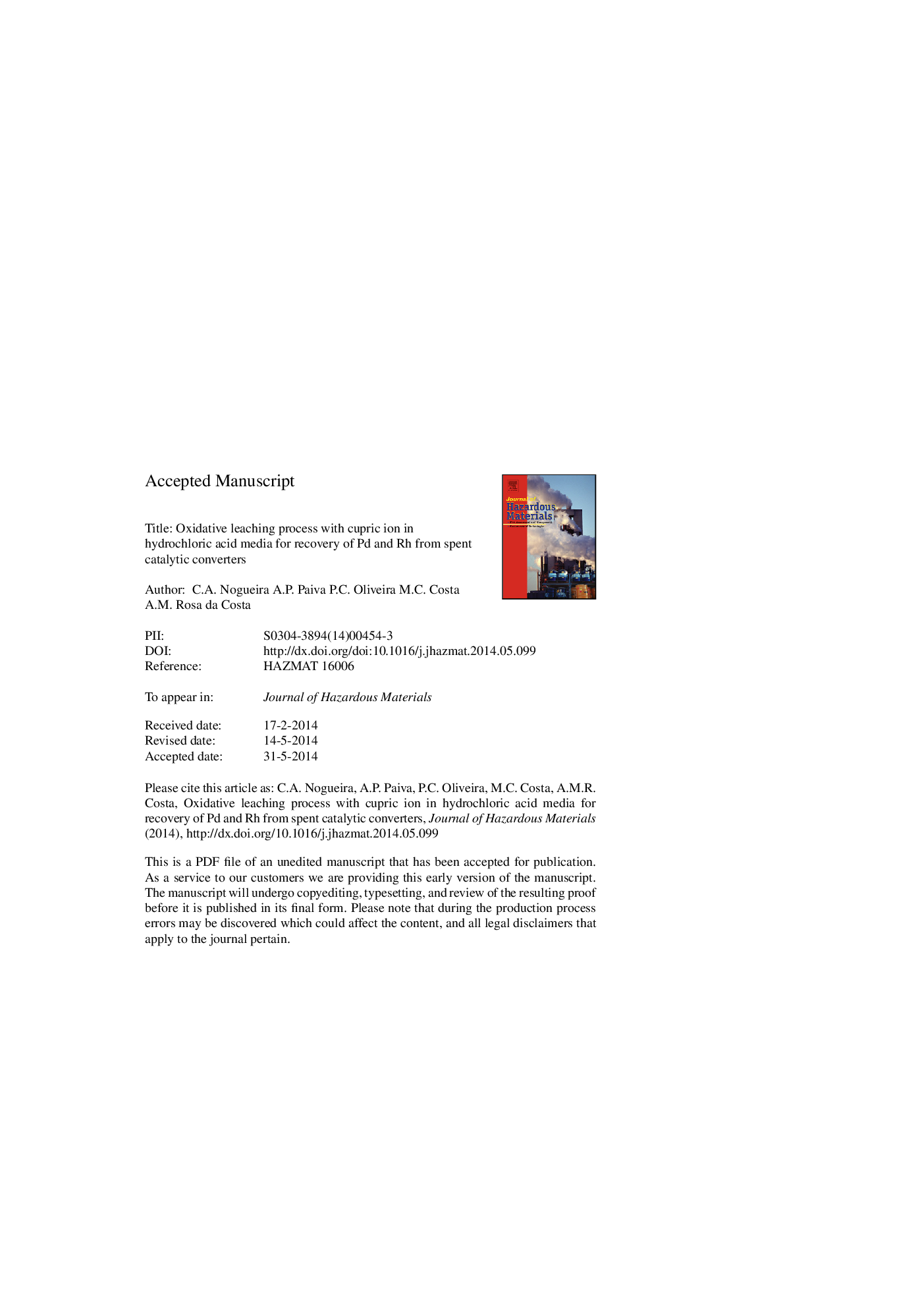| Article ID | Journal | Published Year | Pages | File Type |
|---|---|---|---|---|
| 576513 | Journal of Hazardous Materials | 2014 | 32 Pages |
Abstract
The recycling of platinum-group metals from wastes such as autocatalytic converters is getting growing attention due to the scarcity of these precious metals and the market pressure originated by increase of demand in current and emerging applications. Hydrometallurgical treatment of such wastes is an alternative way to the most usual pyrometallurgical processes based on smelter operations. This paper focuses on the development of a leaching process using cupric chloride as oxidising agent, in HCl media, for recovery of palladium and rhodium from a spent catalyst. The chloride media allows the adequate conditions for oxidising and solubilising the metals, as demonstrated by equilibrium calculations based on thermodynamic data. The experimental study of the leaching process revealed that Pd solubilisation is clearly easier than that of Rh. The factors temperature, time, and HCl and Cu2+ concentrations were significant regarding Pd and Rh leaching, the latter requiring higher factor values to achieve the same results. Leaching yields of 95% Pd and 86% Rh were achieved under optimised conditions (T = 80 °C, t = 4 h, [HCl] = 6 M, [Cu2+] = 0.3 M).
Related Topics
Physical Sciences and Engineering
Chemical Engineering
Chemical Health and Safety
Authors
C.A. Nogueira, A.P. Paiva, P.C. Oliveira, M.C. Costa, A.M. Rosa da Costa,
